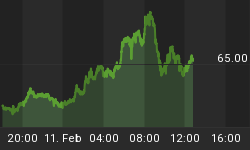Hong Kong is introducing a new tax benefit for residents buying an electric car that would make EVs cheaper, as it tries to encourage battery-powered cars usage and at the same time ease some of the heavy traffic on its roads.
Under the 2018-2019 budget unveiled on Wednesday, Hong Kong is introducing a new ‘One-for-One Replacement’ Scheme starting today and running until March 31, 2021. Under the new initiative, private car owners who want to scrap and deregister their eligible old vehicle—either a car with an internal combustion engine or an EV—will get a waiver of up to 250,000 Hong Kong dollars from the first registration tax (FRT) on the new EV.
Hong Kong will also keep an existing waiver of up to 97,500 Hong Kong dollars from April 1, 2018, to March 31, 2021, for the first registration tax.
Hong Kong will continue to waive in full the first registration tax on all other types of EVs—electric commercial vehicles, electric motorcycles, and electric motor tricycles—from April 1, 2018, to March 31, 2021.
“As for e-PCs [electric private cars], on one hand, the Government has to control the growth of PCs to prevent aggravating traffic congestion and roadside air pollution, and on the other hand it also hopes to encourage car owners to go for electric vehicles as far as possible when purchasing PCs,” a spokesman for Hong Kong’s Environment Bureau (ENB) said in today’s statement on the EVs tax benefits. Related: The Morning After: Dow Starts To Regain Post-Powell Losses
Last year, Hong Kong’s government was criticized—including by Tesla—for stifling the growth of EV sales after it scrapped a tax exemption on electric cars in order to fight traffic congestion. The tax on EVs was expected to raise car prices by at least 50 percent.
Earlier this month, Mark Webb-Johnson, chairman at Charged Hong Kong, a local group supporting the adoption of EVs, sent an open letter to the Chief Executive of the Hong Kong administrative region, Carrie Lam, in which he criticized last year’s capping of the EV tax incentives and said that EV sales plunged by 95 percent in 2017 compared to 2016, while overall private car growth was 4 percent.
“Buyers have simply switched back to buying polluting petrol and diesel vehicles,” Webb-Johnson said, and urged the administration to “follow the lead set by other countries around the world and set a clear date by which no new petrol/diesel vehicles will be registered.”
By Tsvetana Paraskova for Oilprice.com
More Top Reads From Safehaven.com:
















